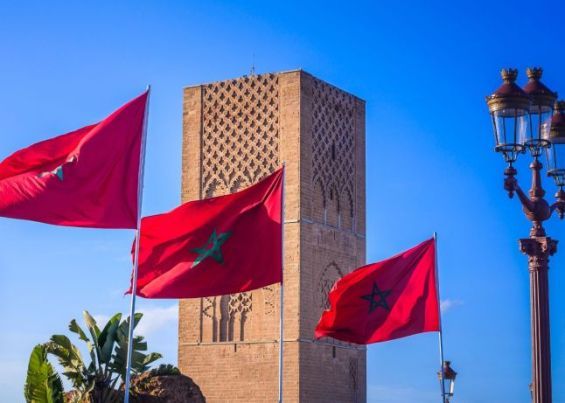On Saturday, June 29th, the Royal Palace announced the sad news of the passing of King Mohammed VI’s mother, Lalla Latifa. Shortly after the unfortunate news, social media was flooded with reports of national mourning in Morocco, with the cancellation of festivals and concerts.
However, no official communication has confirmed the rumors. As planned, cultural and sports events, as well as music concerts, were carried out as scheduled.
Mourning: When and why ?
In Morocco, no law regulates the announcement of a national mourning. The decision is entirely made by the Royal Palace. A period of national mourning is often announced following the death of prominent figures in Morocco or those of ally countries. National mourning is also declared in the North African Kingdom following tragic events, such as natural disasters.
A period of mourning often involves specific observances such as flying flags at half-mast in government and private institutions and in public squares, and the holding of funeral prayers in mosques for the deceased or victims.
The official media also broadcast special programs on national channels and radio stations about the life and achievements of the deceased or coverage of the tragic events, in addition to religious programs or recitations of the Holy Quran. Celebratory and recreational activities are also suspended during this mourning period.
Kings and princes
Upon the death of the late King Hassan II's brother, Prince Moulay Abdallah, on December 20, 1983, a three-day period of national mourning was declared (December 21-23, 1983). Flags were lowered from all official buildings for seven days, and work was suspended in all public and semi-public administrations and institutions and the private sector on December 22, 1983, throughout the Kingdom, for funeral prayers at the Hassan Mosque in Rabat, and absentee prayers in other mosques in the Kingdom.
On July 23, 1999, Moroccan television programs were interrupted and replaced by the recitation of the Holy Quran. Hours later, the death of King Hassan II, who had ruled the country for 38 years, was announced. The Ministry of Palaces and Honors announced that the funeral would take place after afternoon prayers on Sunday, July 25, and a national mourning period of forty days was declared, the longest period of mourning in the Kingdom.
Throughout the mourning period, state television and national radio continued to broadcast recitations of the Quran and programs listing the merits of the late king.
In November 2004, after the death of Sheikh Zayed bin Sultan Al Nahyan, the founder of the United Arab Emirates, Morocco declared a three-day national mourning period, with national flags at half-mast.
At the beginning of August 2005, Morocco observed a three-day national mourning period after the death of Saudi King Fahd bin Abdulaziz Al Saud.
In January 2006, the Ministry of Royal Palaces, Honors, and Decorations announced that Morocco would lower national flags at government buildings, administrations, public places, and Moroccan embassies abroad for three days to mourn the death of the Emir of Kuwait, Sabah Al-Ahmad Al-Jaber Al-Sabah.
In January 2015, the Moroccan national flag was lowered on government buildings, public institutions, administrations, and public spaces for three days to mourn the death of Saudi King Abdullah bin Abdulaziz Al Saud.
In May 2022, Morocco declared three days of national mourning following the passing of the late President of the United Arab Emirates, Sheikh Khalifa bin Zayed Al Nahyan.
Accidents and natural disasters
In July 2011, King Mohammed VI ordered a three-day national mourning period and the lowering of flags over all public administrations and institutions after a military plane carrying 81 passengers from Dakhla crashed on July 26.
Mourning is also declared in natural disasters, such as after the earthquake that hit the Al Haouz region on September 8, 2023, killing more than 2,900 people and injuring 5,500, mostly in the provinces of Haouz, Taroudant, and Chichaoua. King Mohammed VI ordered that flags be flown at half-staff for three days.
The declaration of mourning generally reflects respect and appreciation for the deceased or sympathy for the victims, and is considered part of national traditions that promote unity and solidarity among the people in the face of sorrows and calamities.





 chargement...
chargement...













